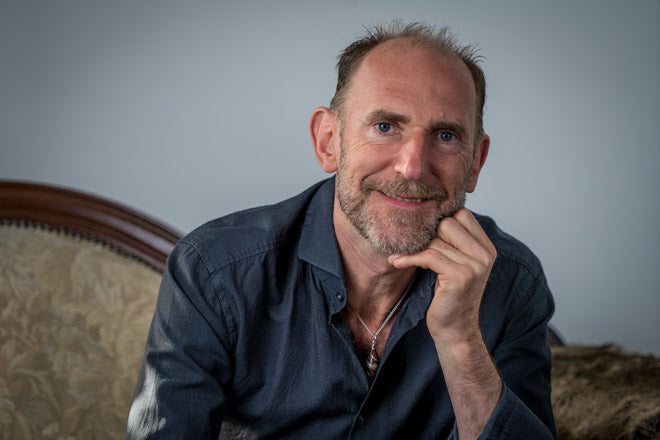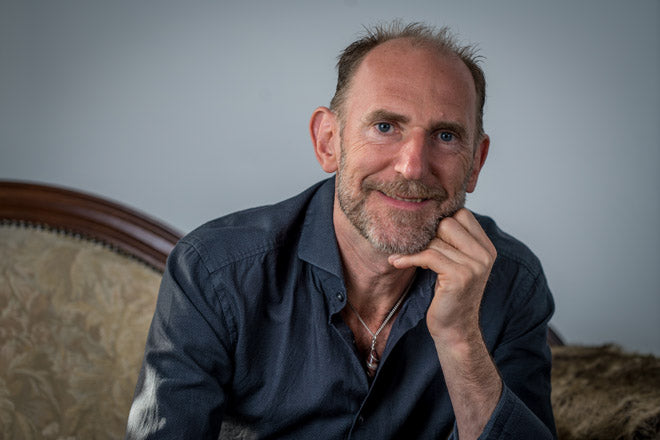
Interview with Andreas Winter: “Just switch on your autopilot for happiness and success!”
Interview with Andreas Winter: “Just switch on your autopilot for happiness and success!”
"How did we learn to walk as children? We saw an object or a person that we really wanted to reach - and learned to walk as we went along. This is how our 'autopilot' for success still works today: with fun, enthusiasm and passion. If a goal is your top emotional priority, you will automatically acquire the ability to achieve it." Graduate teacher and bestselling author Andreas Winter , whose guidebook "Set goals - let go - achieve!" has now been published in a revised paperback edition, explains in an interview why we can only stand in the way of our own success and why we always have to pay a price for both the realization and the non-realization of our goals.
Almost ten years after the first edition as the seventh volume of the Psychocoach series, your success guide is now being published as a paperback and as a coaching CD. What is different about the new edition?
Winter: My experiences of the last ten years as well as the latest findings and developments have been incorporated, so that the revised new version is even more to the point. In particular, I have worked out the aspect of emotional focus on the goal even more. The audio book version, which I recorded myself, uses my own energy to convey how important it is not to get stubborn and obstinate, but to aim for your goals in a relaxed and enthusiastic manner - and then "pull the trigger".
Most people - and with them countless motivational speakers - are convinced that success and prosperity depend on hard work and discipline. What is your opinion?
Winter: Discipline simply uses the wrong parts of the brain. It suppresses your own needs in favor of external expectations. These expectations may well be predominant in your own head, but they are acquired from outside during childhood. In order to achieve virtuosity, to achieve effortless top performance, you cannot use discipline and self-hardness, but you have to be in emotional harmony with your goals, otherwise you sabotage yourself.
Your career so far clearly illustrates that you yourself are the best proof of your theory. How did that come about and what do success and happiness mean to you personally?
Winter: For me, success means that what I experience is also what I want to experience. That sounds banal, but it isn't. Many people are annoyed by their own behavior, feel guilty or have a bad conscience when they do or don't do something. I, on the other hand, stopped getting annoyed about things a long time ago and always see problems as an opportunity to solve them. As I said: success is when what you do and experience is also what you want to experience. A little bird's eye view and patience often help. Sometimes it takes a while to understand that what happens to you leads to success. For example, I describe my school career. It wasn't completely straightforward; I changed schools in sixth grade because of bad grades. In retrospect, it was a very good and correct decision, because while my former classmates were struggling through school to get good grades, I was able to relax and put my feet up for a few years - and today I have a better job than most of the others. Simply following your destiny's path and not complaining gives me a sense of achievement. The more I have of that, the happier I feel.
Feelings of guilt, false beliefs, patronizing attitudes and fears sabotage successful learning and action, while enthusiasm, passion and confidence are the "autopilots" for success and prosperity. How do you activate this "autopilot" and what are the conditions for acquiring the "driver's license to happiness"?
Winter: The question should really be: "How do you turn off this autopilot?" Because that's exactly how we learn as children - with fun, with interest, with enthusiasm. Children see something that fascinates them and learn to reach for it. Later on, they even learn to walk towards it on two legs without using their hands. Without instructions, intent, discipline or pressure of expectations. That's exactly how you program your goal computer - you need an emotional reason of the highest priority for your goal. Then you learn the ability to achieve it along the way.
In your opinion, obstacles to success originate from the place where the greatest emotional influence has been exerted on a person - in childhood. Are one's own parents really responsible for later failure, or how should this be understood?
Winter: Unfortunately, children's own parents - I call them "the usual suspects" - are like a template for copying. Children believe that their parents are role models that they should emulate, and they overlook the fact that parents themselves are usually not happy, content, effortlessly successful, or in harmonious relationships. So children also copy behaviors and attitudes that are unsuitable for a happy life. Unfortunately, parents provide their children with a value system, and depending on their personality and character, children either accept it or oppose it. But in both cases, they relate to it. If parents think it is difficult to earn money, then children learn this too. If parents believe that you can only be successful with effort, then this belief will also develop in their children - unless the parents manage not to make themselves too important to their children, not to be the sole provider of values. Then the children can also develop their own views and try out their own behavior.
The guidebook is accompanied by an audio book of the same name with “audio coaching” on CD . Is the audio book intended as a supplement or as an alternative to the “classic” book?
Winter: The audio book is a bit shortened, so it's reduced to the essentials and includes a coaching unit. It's basically a kind of "instant booster for the road to success". In addition, when reading, you often put a different emphasis on something than the author himself, so I can convey what I'm talking about in the book in a little more nuanced way in the audio book.
They say that although you can be successful without any effort, there is always a price to pay for success, happiness and satisfaction. What is this price and is it perhaps simply too high for most people?
Winter: This may be a little unusual for many people, but it doesn't matter whether we do something or not: we "bleed for it". Every reaction, every decision has just as many advantages as disadvantages. That's what I mean by: we always pay a price. And if we do pay a price, then we have the right to get something in return that gives our lives meaning. If we avoid something through fear, shyness, illness or withdrawal, then we may not experience immediate social rejection, we will come to a standstill. If you don't do something, you won't experience anything. If you want to have a career, for example, your colleagues may become jealous of you. If you forego career development, the jealous people will stay in the doghouse, but your professional development will be stopped. If you want to play the piano, you will not only get flowers, but maybe tomatoes too. If you avoid tomatoes by not playing the piano, you certainly won't get flowers either. So if we become achievers again, that is, if we do something without fear, but instead with a willingness to take risks, self-confidence, trust in others, enthusiasm and a desire to experience, then we can face strong headwinds - but we get something out of it: our development, in other words the meaning of our life. So I recommend: "No matter what you do, always do it in such a way that you can still take responsibility for it tomorrow, because you will bear the responsibility anyway." With this life principle, every day will be a success!
Book tip:
Andreas Winter: Aim – let go – achieve! How to set your brain for success. Mankau Verlag 2019, paperback, 12 x 19 cm, 158 pages, 10.90 euros (D) / 11.30 euros (A), ISBN 978-3-86374-518-9.
Audiobook tip:
Andreas Winter: Aim – let go – achieve! Audiobook with coaching. Mankau Verlag 2019, 2 audio CDs, total running time approx. 153 minutes, 15 euros RRP (D/A), ISBN 978-3-86374-521-9.
Link recommendations:
More information about the guide book "Set goals - let go - achieve!"
To the reading sample in PDF format
More information about the audio book "Set goals - let go - achieve!" (2 audio CDs)
More about the author Andreas Winter
To the Internet forum with Andreas Winter











